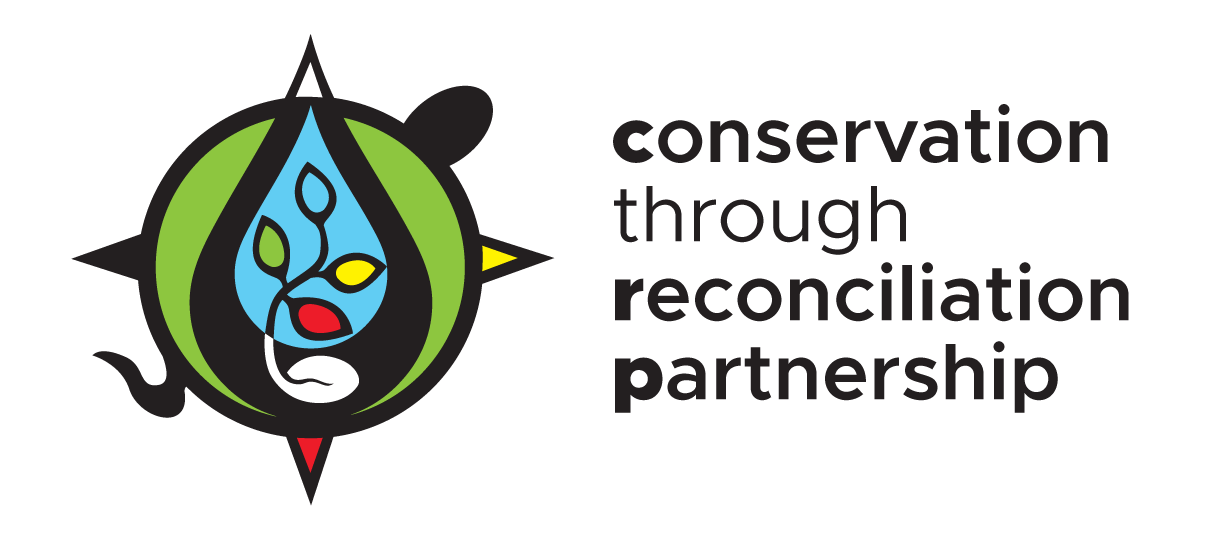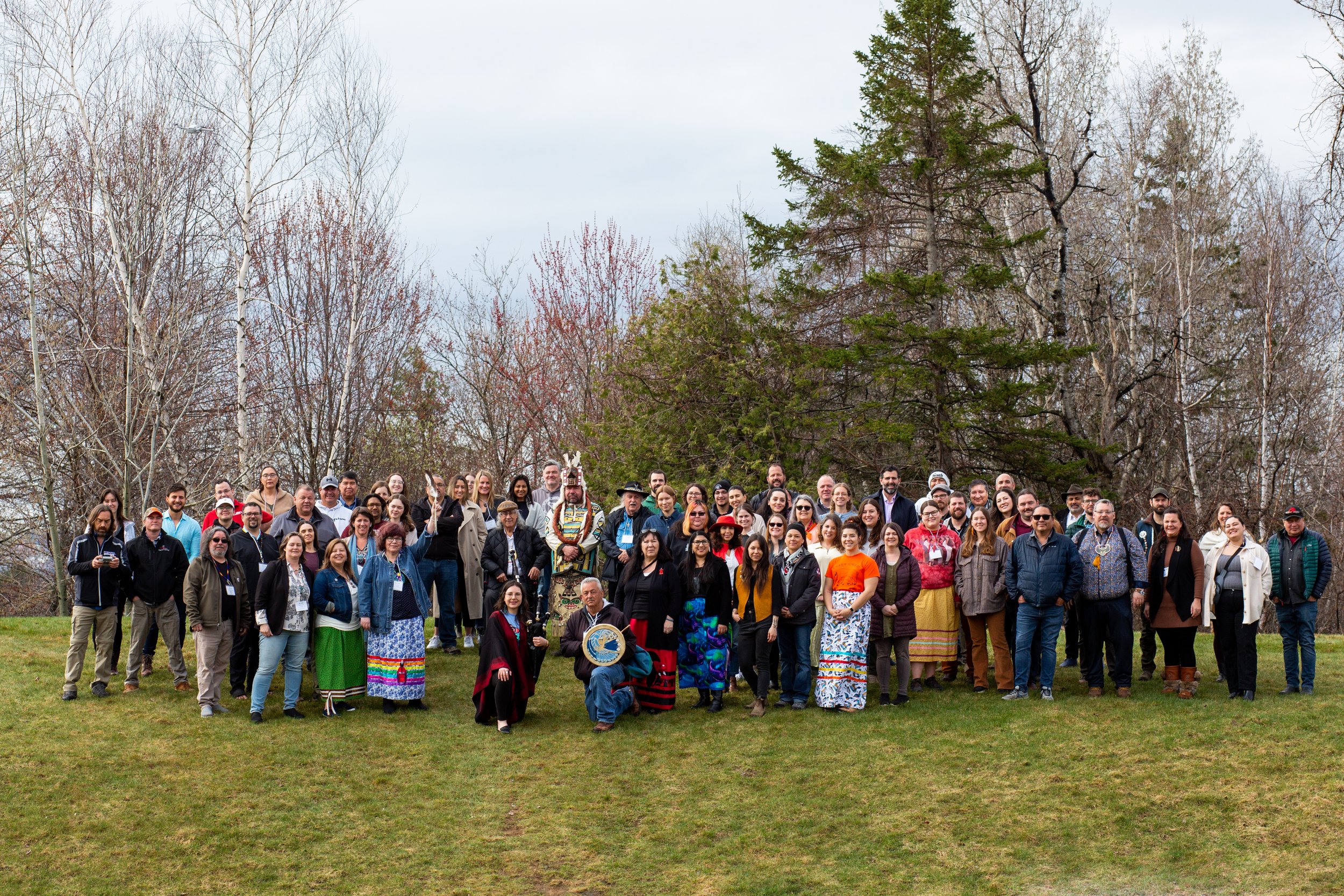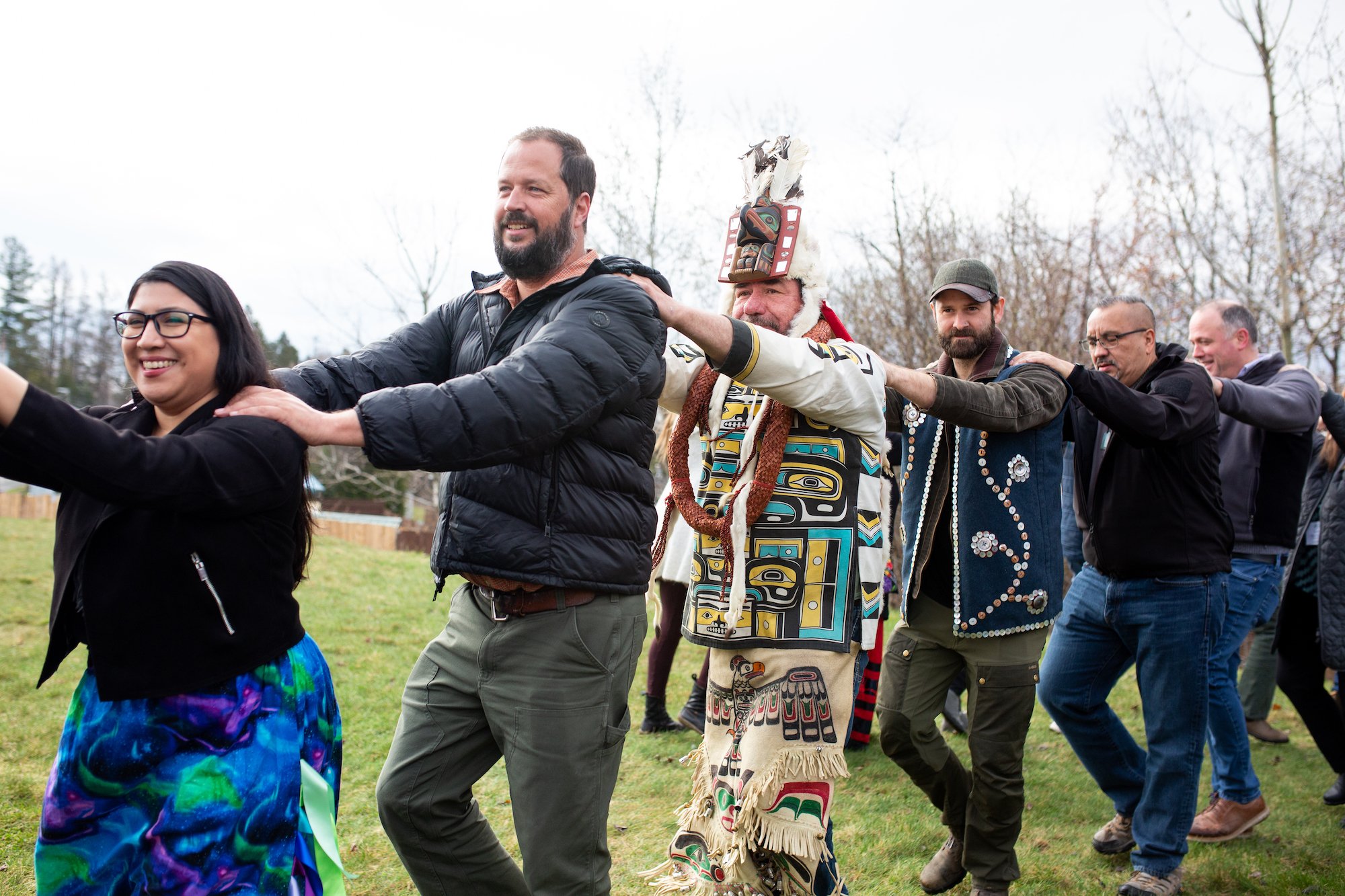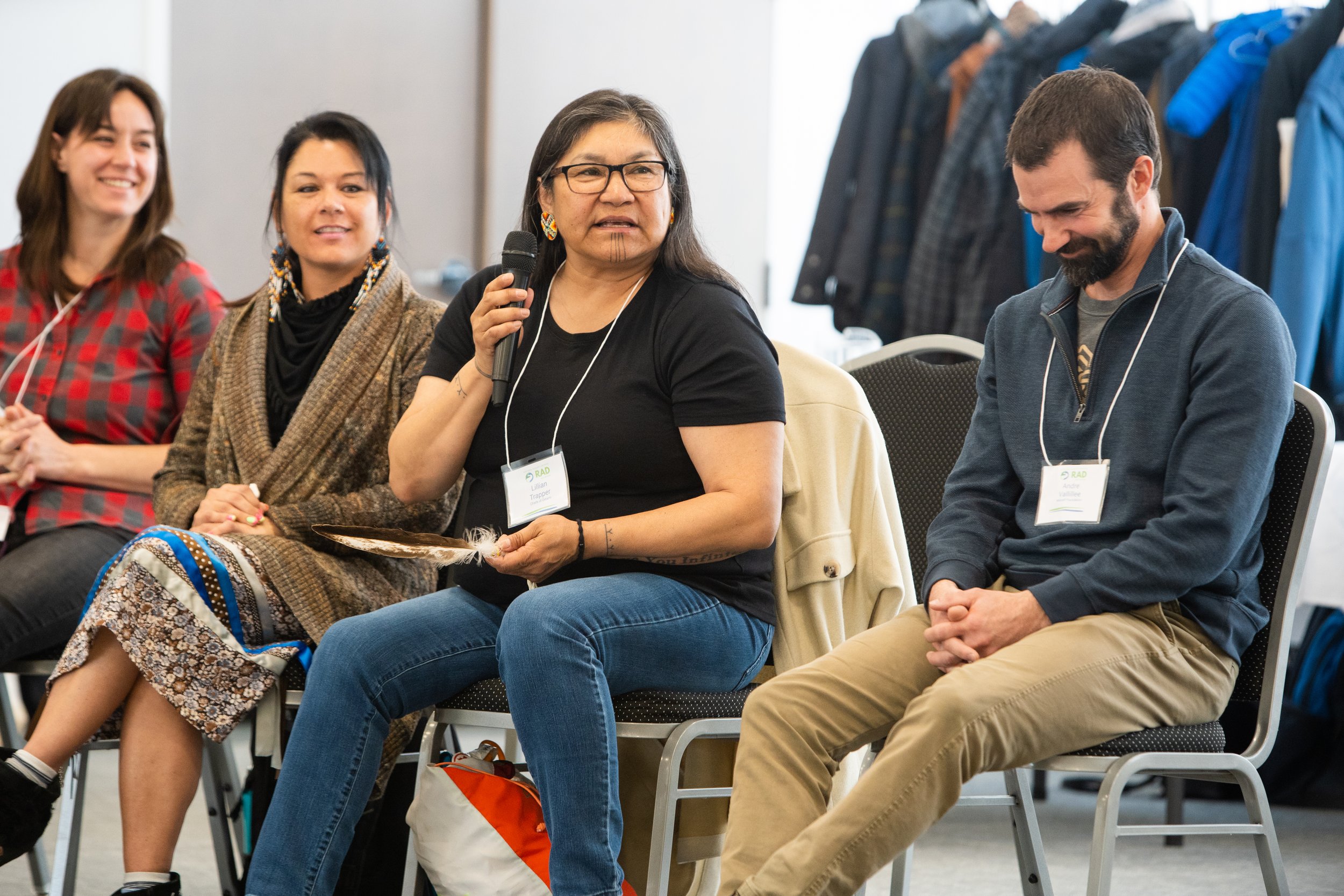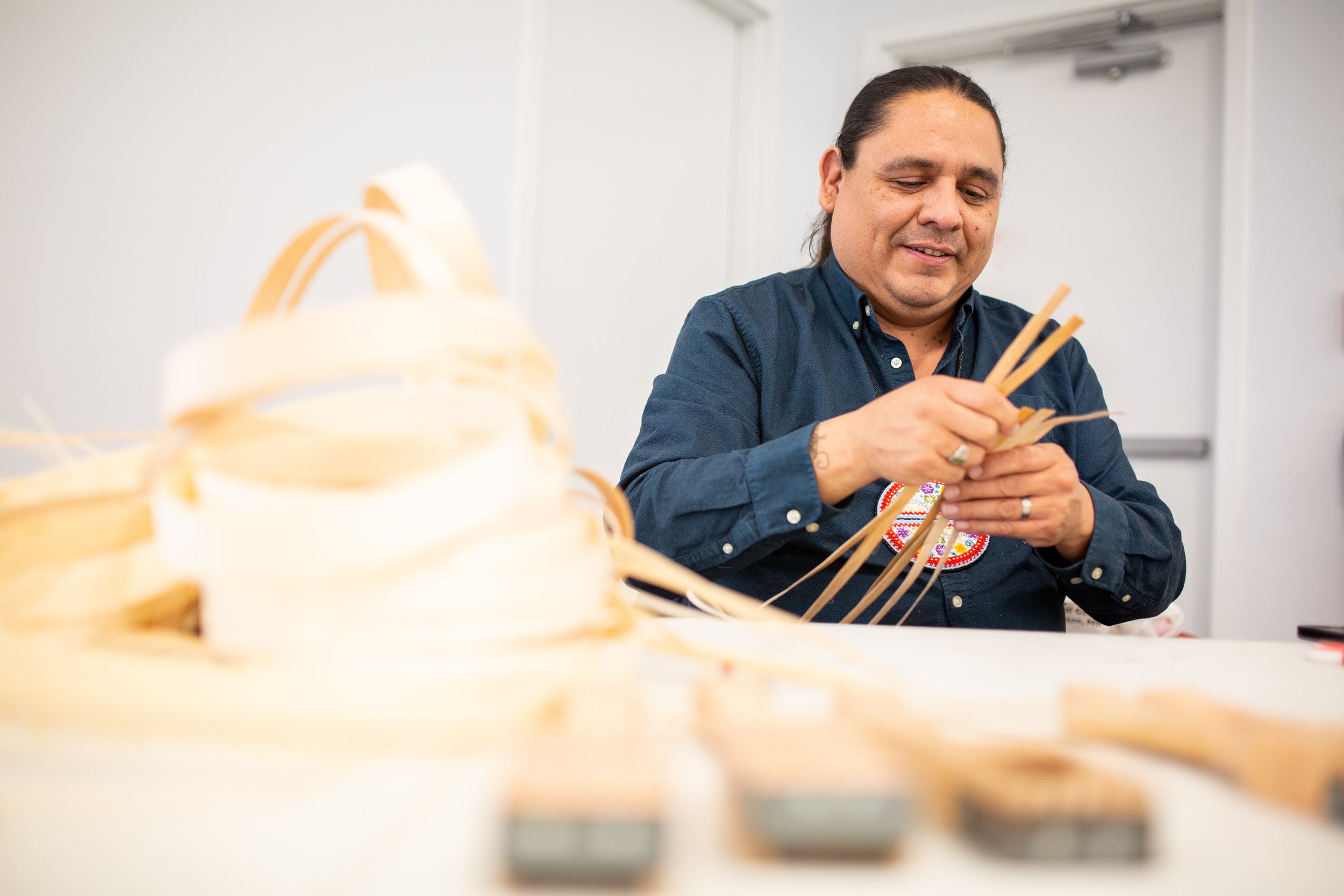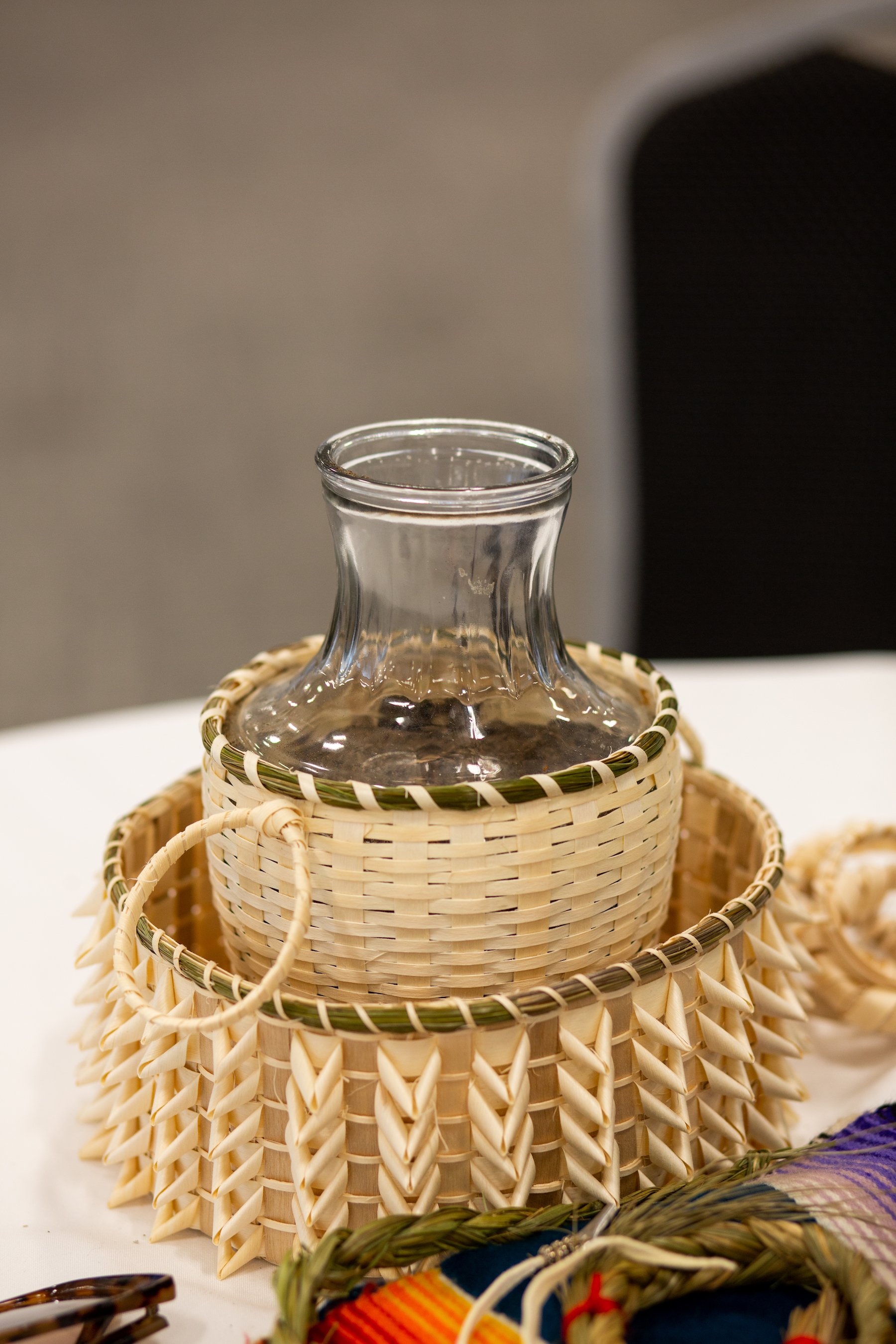Envisioning Pathways Forward: Reflections from the First Gathering of the RAD Network
August 16, 2023
By Lara Powell, Restore, Assert, and Defend (RAD) Network
The RAD Network Operations Group would like to acknowledge and express gratitude to the many individuals who made this gathering and collaborative work possible. Woliwon, thank you, to our local hosts, guest Elders, Convenor Patricia Saulis, Facilitator Erin Dixon and Knowledge Holder Terry Young. Many thanks to the RAD Leadership Group – David Flood, Trish Nash, Steven Nitah, Kim Neale, Terry Dorward ,and Eli Enns – as well as many RAD Working Group contributors and all the participants who shared their time, knowledge, stories and visions for the future.
Participants at the April 2023 gathering, “Restore, Assert and Defend (RAD) Network: Envisioning the Indigenous-led Conservation Economy”. (Credit: Mag Hood.)
“Some of us are coming from very small communities or isolated communities and we feel powerless because we don’t have the numbers, but just think what would happen if those small numbers could be empowered? So they could feel that they’re not alone?” – Elder Albert Marshall
These wise words were shared by Elder Albert Marshall at a recent gathering entitled Restore, Assert and Defend (RAD) Network: Envisioning the Indigenous-led Conservation Economy. In a nutshell, this quote captures the overarching purpose of the gathering and the RAD Network itself: to leverage the power of collaboration, co-learning, and reciprocity in pursuit of a shared vision for decolonized and Indigenous-led conservation.
Left to right: Elder Albert Marshall, Erin Dixon (gathering facilitator) and Patricia Saulis (local convenor). (Credit: Mag Hood.)
The RAD Network has emerged from the streams of work of the Conservation through Reconciliation Partnership (CRP) to enable regenerative conservation finance pathways rooted in Indigenous rights, responsibilities, and knowledge systems.
The network formed in response to a gap and opportunity around financing solutions – with the goal to support Indigenous governments in enshrining Indigenous governance and rights in nature-based solutions including carbon management projects, natural asset valuations and other innovative financial tools. Following along the path that has been laid by the Indigenous Circle of Experts (ICE) and the CRP, RAD seeks to connect Indigenous governments and communities to each other, and to financial resources, tools, and expertise to advance Indigenous Protected and Conserved Areas (IPCAs) and regenerative Indigenous-led economies.
Since 2022, the network has been steadily growing with strategic direction from its Leadership Group, consisting of David Flood (Wahkohtowin Development), Trish Nash (Unama'ki Institute of Natural Resources), Steven Nitah (Nature for Justice), Kim Neale (Natural Assets Initiative), Eli Enns (IISAAK OLAM Foundation), Terry Dorward (IISAAK OLAM Foundation), and formerly Patricia Saulis who also served as the Local Convenor for the Spring visioning gathering.
RAD Leadership and Operations Group members stand with Elder Ed Perley and Elder Ramona Nicholas who sings a traditional song dedicated to the Wolastoq river. (Credit: Mag Hood.)
From April 24-27, 2023, the network gathered on the unceded and unsurrendered Territory of the Wolastoqwiyik at St. Mary’s First Nation, at Sitansisk (also known as Fredericton, New Brunswick). The intent of the gathering was to foster connections, deepen our understanding of the current context of the work, and co-create a shared vision for the emergent RAD Network. Over 80 individuals from across what is recently known as Canada gathered together, including Indigenous leaders, knowledge holders, land guardians, Elders, youth, academics, activists, legal experts, and policy advisors, among others.
Participants take part in a spontaneous “snake dance” led by Elder Norman Bernard. (Credit: Mag Hood.)
We received a very warm welcome from the local community, Elders, firekeepers, pipe carriers, and mental wellness supports who played important roles throughout the gathering. Thanks to our local hosts, we experienced a gathering rooted in place and enriched by ceremony, cultural teachings, and musical traditions. Our facilitator, Erin Dixon, and local convenor, Patricia Saulis, led the design of an agenda that prioritized dialogue and interaction so that everyone felt heard and engaged.
The gathering was further enriched by the contributions of Terry Young, Wolastoqiyik (Maliseet) scholar and knowledge holder from Kingsclear First Nation, who wove a traditional ash basket to reflect the spirit and intentions we collectively wove together. Inspired by Terry’s weaving and teachings, the RAD Network is deepening our commitment to an “ash basket” network model where our work is supported through collective (or woven) contributions and relationships rooted in reciprocity. (Stay tuned for updates on the development of RAD Reciprocity Agreements in Fall 2023.)
Wolastoqiyik scholar and basket maker, Terry Young. (Credit: Mag Hood.)
Ash basket crafted by Terry Young, holding soil from across Turtle Island. (Credit: Mag Hood.)
We heard from individuals pursuing initiatives from coast-to-coast-to-coast, from those with well established IPCAs to those in the early stages of visioning, and from diverse cultural, jurisdictional, geopolitical and ecological contexts. Key themes of discussion included community kinship, jurisdiction, markets, policy and advocacy, values, voice and communication, youth engagement, the rights of nature, and discussions around tools that can advance our goals in these areas. Some of these themes are captured in the graphic recordings shown below, along with words and images that provide a snapshot of the discussions. The graphic recordings were created by Ashton Rodenhiser (Mind’s Eye Creative). Click on the light grey arrow boxes to view all three graphic recordings.
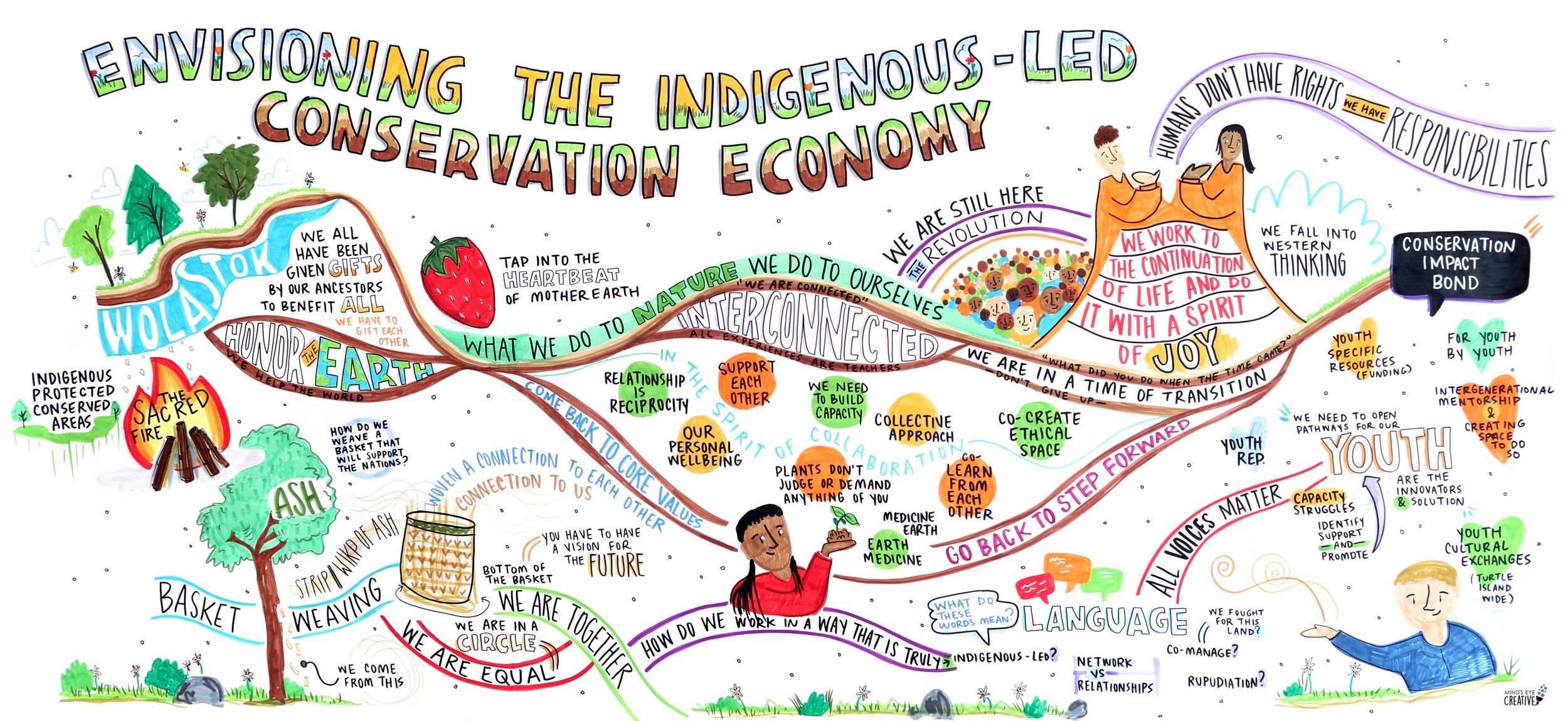
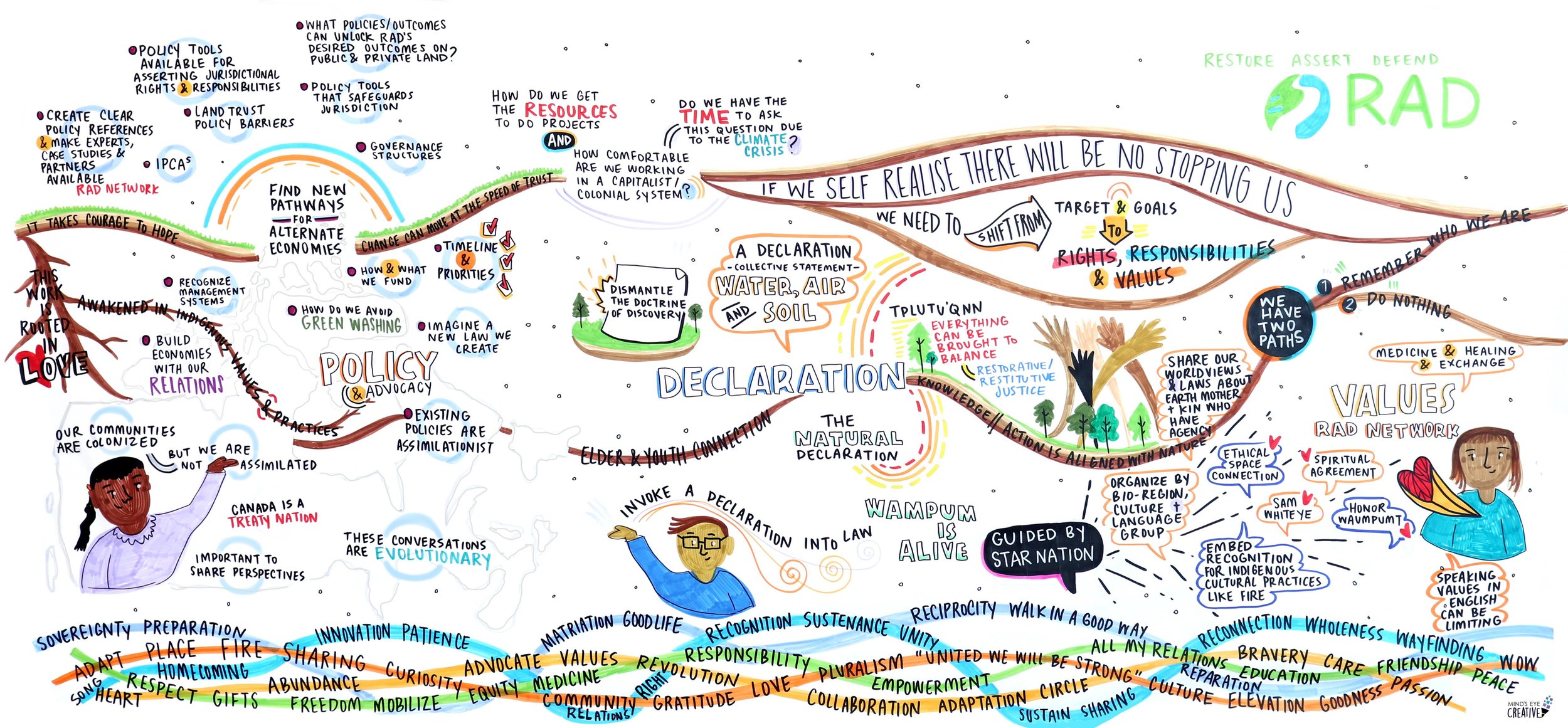
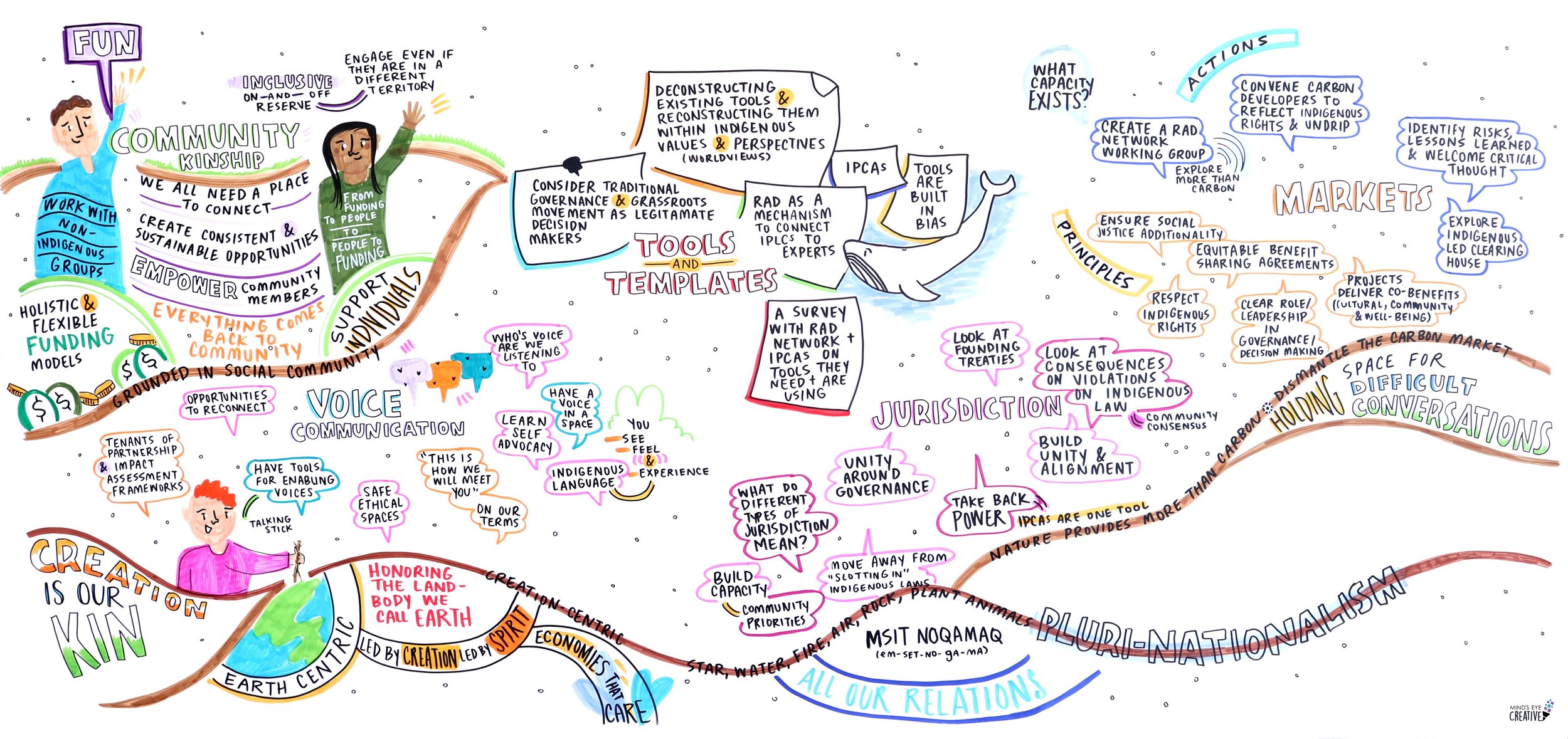
Flowing from the gathering, new working groups and projects are on the horizon to advance the policy and legal work that is needed to support Indigenous governments in asserting their rights and jurisdiction. In addition, work is emerging around the marketplace and ensuring that Indigenous Peoples derive benefit from nature-based solutions in their territories. RAD is poised to identify and act on critical policy windows (while also addressing tensions and limitations of working within flawed colonial structures). Among other outcomes, the gathering also planted the seeds for strengthening youth engagement and leadership, which we began exploring further at our June virtual Full Moon Network Gathering (a recap of which is provided in our June newsletter).
Ultimately, the gathering reinforced and clarified the RAD Network’s priorities and provided a springboard for further action. The RAD Leadership and Operations Groups have been working on a report to summarize what we heard at the gathering and distill potential actions and outputs for the RAD Network to pursue moving forward. Following a ‘soft launch’ of the report wherein gathering participants will be invited to provide input, the target release date for the final report is early September 2023. The launch will come alongside invitations to engage and strategic efforts to transform the vision into action.
Graphic recording by Ashton Rodenhiser, highlighting the key theme of supporting one another. (Credit: Mag Hood.)
The visioning gathering wove together stories, knowledge, and intentions and created a strong and flexible container for the RAD Network. We look forward to working together to carry forward our shared vision for Indigenous-led regenerative economies.
Contact radpartnership@gmail.com to get in touch with the RAD Network and fill out their membership form to express interest and stay connected.
The RAD Network is financially supported by the Metcalf Foundation, Ducks Unlimited Canada, the National Resources Defense Council (NRDC), WWF-Canada, plus many other organizations through collaborative relationships and in-kind support.
